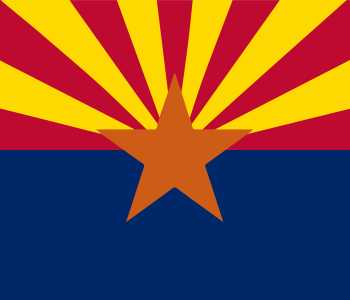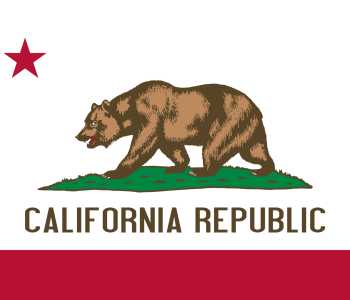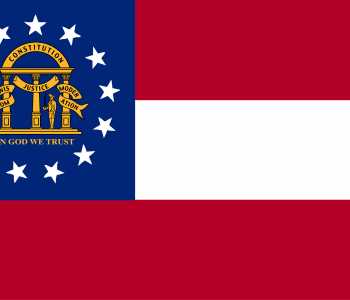How to Open a Business Bank Account

Whether you just came up with a slogan for your startup or you have been operating your own business for decades, nothing beats the ease of operating with a business bank account. The rates benefit business owners, and it makes your life easier when you can separate transactions for work from everything else you do on a daily basis.
What if you've never had a business bank account in the past? Do you think you might not actually need one and can just juggle your existing checking or savings account?
By the time you discover all the advantages of keeping an open business account, you'll wonder how you ever survived without one.
Reasons for Opening a Business Bank Account
Maybe you're still in the camp of people who think they don't need a business account. You can manage just fine on your own and you have been doing so for years. Why bother complicating things with another account and keeping track of another set of figures?
The truth is that the additional info you keep track of is going to be extremely important as time goes on. Your business will grow, and with it, the amount of attention you'll need to pay to everything related to expenses.
Furthermore, in some cases, you will legally be required to keep your business and personal expenses apart from each other.
Liability and Image
Let's say you run into some trouble and need to take advantage of the limited liability your company is obligated to while in operation. If you've been combining your personal assets with business money, you're in for some serious trouble. That liability won't be so limited when the IRS can't figure out how to separate what you're doing from what your business is doing.
Here's another thing to consider: how do you want to present yourself to your clients? If you want to look as professional as possible, you don't want to settle for anything less than the best image. Part of this comes with a business account.
By issuing checks and taking deposits through a professional name, you'll come off as someone who knows exactly what they're doing. If you walk into a store and pay with a business credit card instead of your own personal card, you might even attract some new customers to your product.
Saving Yourself
A familiar question you may have asked yourself outside of the business world is - checking or savings?
This will come down to how you plan to use each of your accounts. If you plan on a bunch of individual transactions on a daily basis, you'll want to stick with a checking account. These usually have less strict requirements than a savings plan, and you can easily access it with a debit card for daily use.
This way, you can keep any extra money you have in a savings account. You will be less likely to touch what's in savings based on the name, and you'll be able to start accruing interest on the dollar amount put in a savings account. It's all very similar to what you first learned about opening a bank account when you were a child and thinking about the immediate future of your money vs. long-term.
The best way to go is to start with a business checking account and find out what you need to use each day. Get yourself set up with a company checkbook, maintain all of your inventory through invoicing, and use the bank's app to keep track of anything you don't have written down in front of you.
After you understand what you're working with when your business is in operation, determine how much you have leftover. This is where you can get an idea of how and when to open a savings account for your business.
Every little bit counts. And, you also want to be sure that you have enough to start a savings account - most banks require a higher deposit minimum for savings.
Keep an eye out for what you need to purchase for your business before you make a final decision on the account. If you're still in the early stages and need startup funds, stick to the checking account so that you can access it wherever you are.
Setting Up Your Business Bank Account
Great, you've taken the first step toward moving your business forward and starting a business bank account! Get ready for some paperwork, because whatever bank you choose, no matter how large or small they are, is going to want to see some documentation.
The first thing you should do is check your bank and state's requirements. Each institution and state will have different rules which will affect what kinds of documents you need to take with you when opening your account. It gets even more complicated when you determine exactly what kinds of business you are operating.
We never said it would be easy!
Start by figuring out the category your business falls into. If you operate under sole proprietorship or general partnership, you'll need your social security number or business tax ID, respectively. You'll also need to bring your business license with your name and the name of the business clearly shown on it, as well as the filing document for the business name.
For a general partnership, as well as a limited partnership or limited liability partnership, you'll need to make sure you have a partnership agreement with all partners - names included, along with an organizing document that clearly mentions the state where you formed the business. In addition, you'll bring an assumed name certificate, and your current business license.
Limited liability companies need the same social security number or business tax ID, and articles of organization. Bring your certificate of organization, and the organizing document that was filed with the state where the business was formed.
Finally, if you're operating as an S-corp, you'll bring everything that an LLC would bring, plus a balance sheet, and a certificate of assumed name.
Keeping track of all this paperwork is vital to the existence of not only your business, but the continued support of your bank for your account. Business bank account owners are given rights and privileges that personal account holders don't have, so make sure you present yourself as legitimate and professional when you launch your bank account.
Finding Your Documents
If you looked at the list above and wondered what some of the documents were, don't worry. We'll go over each of them to make sure you have them, and if you don't, how to get them.
Business License
This one should be pretty self-explanatory. Your state will have specific requirements on what it takes to operate a business, and when they are met, you'll be issued a license. Be sure to check with your state to find out what those requirements are, since they'll be different across every border.
Business Tax ID
Fortunately, this doesn't require a lot of busy work or too many steps. With a valid social security number, you can apply for a business tax ID right on the IRS website. This way, you can have a tax ID outside of your social security number, which can make things a lot easier when you do your taxes at the end of the year.
As long as your company is located within the United States, you shouldn't have any trouble getting a business tax ID within thirty minutes.
Organizing Documents
As with other cases, the requirements for organizing documents differ from state to state. Overall, you'll list a few different aspects of your company on each document, such as the name, the members who work for the company, a physical address, how the management is structured, and what activities or services your business provides.
If the bank asks for a certificate or organization, you just need to provide the formal acknowledgement that your state has your business on the books.
Partnership Agreement
This might also be known as a founder's agreement in some jurisdictions. Basically, you need to draw up an agreement between all the people involved in the foundation of your business, and the means by which you'll be conducting business. It might sound a little redundant with all the other documents you already have on file, but it's better to be safe and keep this on hand if the bank asks you.
The nice thing about this and all the documents you might need to open an account is that you can easily prepare them. There are no official ways to create them, and you can make them so that they represent your business through logos, letterheads, and the like. You can let your creative side out when you submit any formal documentation to the bank before they give you the approval on your business account.
Opening Your Business Bank Account
Now that all of the legal red tape is out of the way, you'll be able to focus on why you came here in the first place: getting a business bank account set up and depositing your first lump of money into your investment.
When it comes to fees and minimum amounts, your mileage will vary. We'll take a look at one of the biggest banks in the country, Wells Fargo, to preview their options for business checking accounts.
Wells Fargo
Wells Fargo has three different business checking account options, largely related to the amount of money you're working with, and the number of deposits you make from month to month.
• The Simple Business Checking account, mostly designed for non-profit or smaller businesses that have minimal activity and account balances on the lower end, requires you to make 50 transactions in a month and deposit $3,000 each month into the account.
• For larger companies, the Platinum Business Checking model ups the requirements to 500 transactions and $20,000 per month.
• Their most popular option, Business Choice Checking, is for those who have just started their business and need to maintain consistent activity within their business. You'll need to deposit $7,500 each month and make a minimum of 200 transactions.
Currently, Wells Fargo offers a $300 bonus for anyone who opens a new business account.
The bank has several requirement options for you to avoid a monthly service fee, mainly for the Business Choice Checking account. You can combine $10,000 across different balances from business savings, credit, and CD's, or post at least 10 business purchases or payments through your debit card.
To obtain this bonus, you'll need to begin with a deposit of at least $25. After the first 20 days of your account being open, you'll have to deposit an additional $1,000 and keep this amount after a period of 60 days. 5 qualifying transactions have to be made - you can do this through debit card payments, mobile deposits, or any checks that are deposited and cashed.
Chase Bank
If Wells Fargo doesn't work for you, you can also consider Chase Bank for your business needs. They have many different levels of checking accounts to choose for your business, and currently, they also offer a similar signing bonus of $200.
To get this bonus, you'll have to do largely the same things you would do for Wells Fargo. Within 20 business days of stating the account, you'll need to be sure that $1,000 is deposited. From here, you'll keep this balance for a total of 60 days, and during the same time period, make 5 qualifying transactions through wires, debit card purchases, or Chase QuickDeposits.
Before you get set up with Chase, you can check out what options they have for business bank accounts:
• Chase Total Business Checking is perfect for the new business owner who needs to establish an account in good standing. With low paperless billing fees of $12 per month, you'll be able to focus on other important investments. You'll have access to unlimited electronic deposits, and you get 100 free transactions each month. You could even waive the service fee if you maintain a $1,500 balance daily.
• Chase's Performance Business Checking is like a higher tier of their Total Business Checking option. You'll get the same service fee waiver if you keep a daily balance of at least $35,000, and you'll be able to do 240 free transactions every month. A monthly fee of $30 applies if your balance falls below the requirement.
• Finally, Chase offers Platinum Business Checking for established groups that have a high amount of money to work with. A $95 monthly fee can be waived if your daily operating balance is $100,000 or more. You're eligible for $25,000 of free cash deposits and 500 non-electronic deposits and withdrawals for each month.
Keeping Your Account in Good Standing
Even though it might seem like a hassle, it's worth the paperwork and registration process to establish a business bank account for your company. Once it's out of the way, you won't have to worry about where to keep your transaction history and where to access the funds from your business.
Remember, if nothing else, to keep records of all the paperwork you have filed with the state and federal government. They have their copies, but you should be sure that you have electronic and paper versions filed and ready to access if the bank or anyone else needs to see them. Especially at the state level, you need to be sure that your requirements are met to keep your business license.
After some time passes, you might start considering the status of your business and what type of account it needs. If you are doing well and operating with more income than before, it might be time to start considering a business savings account. Think about this if you can afford to keep a higher consistent amount of money in your account and don't need to access it very often.
If you choose to stick with a checking account, you should weigh the cost of many different features. You may be able to find an account that comes with bonus options in transactions, but is it worth it? These typically carry a higher monthly fee, and you'll need to think about how much is in your account at each moment you stop to perform a daily routine.
Don't skimp on any features you think your business will benefit from when opening up your account. If it takes a little extra each month so that you can sell more, go for it, and don't be afraid to consider upgrading your account to the next tier when you start raking in the money.
Calling Yourself a Professional
By the time you establish your minimum daily balance, pass the introductory period, and check your business account from the same device where you keep track of your personal income, you'll wonder how you ever got by without a business bank account.
The advantages are too obvious to pass up, and anyone who wants to be taken seriously as a business owner will tell you the same thing.







